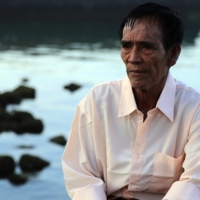
Hlaing
There is an estimated 1,220,000 people living in modern slavery in Indonesia. In Indonesia, women, men, and children are exploited in forced labour in fishing, fish processing, and construction; on plantations, including palm oil; and in mining and manufacturing. Indonesian fishermen working on foreign-flagged vessels reported pervasive abuse, forced labour, unpaid salaries, and, in some cases, allegations of murder. They worked on Taiwan, Thai, Malaysian, and Philippines-flagged fishing vessels operating in Indonesia and in the waters of Thailand, Sri Lanka, Mauritius, and India. Dozens of recruitment agencies in Burma, Indonesia, and Thailand hire fishermen, assign them fake identity and labour permit documents, and force them to fish long hours in waters for low or unpaid salaries while incurring severe physical abuse. The fishermen were prohibited from leaving their vessels and reporting these abuses by threats of exposing their fake identities to the authorities or by detaining them on land in makeshift prisons. Since 2011, about 1,500 men have been repatriated back to Myanmar. According to figures from the Bangkok-based, anti-trafficking group Project Issara, which has examined 478 of those cases, on average, the fishermen have been given only $66 in compensation for each month they were enslaved. Some 88 percent of the migrant workers received less than half of the salary they were promised - or even worse, no pay at all. Originally from Myanmar, Hlaing* now lives in a camp set up for trafficked fishermen in Ambon, Indonesia. At that time, about 81 men at the camp were still waiting to collect their wages and return to their homeland.